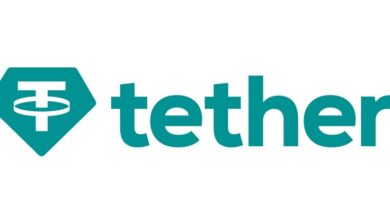Digging for Digital Gold: Cryptocurrency Mining in the GCC

From simple home operations to warehouses filled with thousands of the most technologically advanced and efficient mining rigs, crypto miners generally fall under two categories: retail miners who mine crypto from home and large industrial-scale mining operations that are run by companies, corporations, or high-net-worth individuals (HNWIs).
However, cryptocurrency mining is diligent, costly, and unusually rewarding, but still, this activity remains a magnet to many investors who are interested in the crypto space because, at the end of the day, miners end up receiving crypto tokens as a reward for their work. Pennies from heaven, right? And if you are a tech freak, why not do it?
For instance, the Bitcoin reward that miners receive is an incentive that motivates people to assist in the primary purpose of mining: to legitimize and monitor Bitcoin transactions, while ensuring their validity. Because many users all over the world share these responsibilities, Bitcoin is a “decentralized” cryptocurrency, or one that does not rely on any central authority like a central bank or government to oversee its regulation, which clarifies the point of blockchain technology, especially cryptocurrencies.
Retail cryptocurrency mining has gained popularity in recent years as a way to earn passive income, especially in the GCC, which has some favorable conditions, including relatively cheap electricity costs. However, the legal and regulatory landscape for cryptocurrency mining in the GCC is still developing, with the help of institutions like VARA and ADGM, and it is important for miners to be aware of any relevant laws and regulations in their jurisdiction.
To cover this topic, UNLOCK Blockchain has decided to collaborate with CRYPTOMINERS to give the crypto space an overview of the best and most recommended mining equipment, especially in the MENA region.
CRYPTOMINERS has official stores across the GCC that host crypto enthusiasts from all over the world and provide mining devices and consultancy services. The company emerged as the top crypto mining service provider in the Middle East, setting the path of innovation and excellence not just for clients, but also for their partners in the industry.
This being said, we are going to delve into the crypto mining business in the GCC. However, it is important to explain first the difference between retail and industrial crypto mining.
Retail vs. Industrial-Scale Crypto Mining
In general, crypto mining operations can be broken down into retail miners and industrial mining operations. On one hand, retail mining is generally done at home, typically as a hobby or side hustle.
It can be for fun, profit, or a combination of both. From being revenue negative to making thousands of dollars a year, crypto mining profitability and overall success can vary based on one’s setup, experience, and adaptability, as well as on other factors beyond their direct control, such as the price of electricity per kilowatt/hour (kWh) and more.
For retail users looking to mine crypto on a large scale, colocation mining solutions allow aspiring miners to set up ASIC miners on-site at a colocation space. These services provide the infrastructure for your mining operations — for a price — and typically include the warehousing, powering, cooling, and even maintenance of units. This can be a good option for those who want to mine on a large scale, but don’t necessarily have the capital for their own personal mining operation location.
On the other hand, industrial mining comprises crypto mining warehouses, large crypto mining farms like the ones developed in cold-weather countries, as well as multi-structure and colocation crypto mining farms.
In fact, many of the largest crypto mining operations use multiple warehouses to house their entire operation — some of which use up to 3,000 ASIC miners concurrently. An undertaking of such a size requires significant logistical considerations.
Some large-scale mining operations leverage pre-existing industrial infrastructure, while others build and scale their warehousing footprint incrementally (for example, building or acquiring multiple new warehouses over time). This modularity can help the operation be more easily and efficiently scaled up or down based on market conditions. In addition, this allows the mining operation to be relocated in order to adapt to better conditions.
Also, foregoing CPU and GPU miners, the vast majority of commercial crypto mining operations use hundreds — or even thousands — of the most powerful and efficient ASIC miners.
Through efficiency, scale, and business knowledge, these crypto mining farms can profitably compete to mine some of the coins that feature the most mining competition. And this is why, crypto mining warehouses and farms exist.
Retail Mining in the GCC
There is a myth behind crypto mining profitability, meaning that it varies from country to country. Nonetheless, it is the same all over the globe, with slightly different profit margins depending on a basic factor: electricity. This is why, countries like Qatar, which maintain a good infrastructure and energy sector, are more profitable than other GCC countries.
There are currently more than 250, 000 mining devices in the GCC, and the number is growing by the day. This means that cryptocurrencies, especially Blockchain technology, is not going anywhere, but sadly, this is not the case for miners.
As a matter of fact, Bitcoin miners are continuously looking for regions with less policy risks, especially after the US gained the title of the world’s Bitcoin mining hub– post Beijing crypto ban in May 2021.
This year, in March 2022, Texas state energy operator established an evaluation process that postponed cryptomining a few months. Nevertheless, miners, especially Bitcoin ones, have been fleeing to Texas for its low electricity prices and substantial regulations, knowing that Washington and New York have much restricted regulations on crypto miners due to their large demand on local grids and environmental concerns.
This is why, miners acknowledge that regulatory efforts are a reason to look elsewhere, leading us to the GCC, which has become a very interesting mining region. According to The World Bank, the UAE has the 13th cheapest cost of electricity out of 190 countries. Impressive, right?
However, for a better idea on the matter, the mining industry accounts for 10% of the world’s energy consumption. In fact, the consumption of each retail mining device is around 20-22% of the total power consumption, with the total global electricity usage for crypto-assets being between 120 and 240 billion kilowatt-hours per year.
The CBECI estimates that the crypto network, especially Bitcoin, will cause 48.35 million tonnes of CO2 emissions by the end of this year, which is 14.1% lower than the estimated emissions in 2021. This is because crypto mining is shifting towards hydro and immersion at a rapid speed overall, leaving governments and environmentalists with no choice but to start supporting this technology, with profit being the main reason behind this activity.
When asked about profit and the tactics that miners revert to when prices drop drastically, CRYPTOMINERS CEO, Naser Al Agha, commented, “Income varies on the daily, as it depends on the price of Bitcoin. On one hand, if BTC prices are within the same range, the revenue will follow. Nevertheless, Bitcoin’s mining difficulty usually adjusts downwards; the price trend might spell a crunch for retail miners. On the other hand, one can consider it as an amazing opportunity for those who are looking to dive into mining.”
He continued, “There is no doubt that the price of Bitcoin BTC suffered price losses over the past months, leaving previous mining device models unprofitable. So, powering them off is an obvious solution to avoid bearing the costs.”
According to insights from CRYPTOMINERS, and based on the devices they sell, the major and most used machines in the GCC are the Bitmain Antminer S19 series (Bitcoin Devices), L7 series (Litecoin Devices), Goldshell KD series and MicroBT Whatsminer M20, M30s series.
These devices are usually used, as they are the best for the top mining activities in the region, which include BTC, LTC, Doge, ETC and KDA.
Below is a table that summarizes the information mentioned above, in addition to details regarding the devices:

Technicalities
When talking about technicalities, one has to understand that mining devices have a certain life span, which usually amounts to more than 2 years. After that, retail miners either shut down, trade off, or sell the device once it eventually starts giving negative yields.
As the mining network grows and the main mining factors, like reward halving, occur, one can undoubtedly say that the increase in power costs and the difficulty factors may have changed the mining game.
As previously mentioned, future crypto mining will be shifting to hydro, solar and other renewable sources, which makes it much more manageable. In addition to that, tactics and solutions like water blocks, immersion cooling and software O/S options are now in the equation, and will soon be available at CRYPTOMINERS.
Regarding the switch to another network, it is possible and very doable, for when the BTC network becomes mission impossible for these machines, the device can be moved to another network based on the same algorithm.
For example, BTC can be moved to a network of 56 coins, depending on the performance of other coin networks, the white paper / background and future performance of the network and market cap. This leaves us to say that the main essence is to look into cost to revenue ratio before deciding the shift.
Nevertheless, when it comes to the successful Ethereum merge that took place, most of the devices shifted to the ETC network, which made the mining difficulty high for that coin. In a best-case scenario, these miners simply became validators on the new Ethereum blockchain.
Market Conditions
Market conditions haven’t been ideal for quite some time now, and the crash of bankrupt crypto exchange FTX has made it even worse. Truth be told, the value of FTX’s native token, FTT, plummeted, taking other coins down with it, including Ethereum and Bitcoin, which reached a two-year low and made it more difficult for retail miners to cover their costs and increased ROI.
Considering the factors of the decrease in revenue and the sudden collapse of FTX, investors had to reconsider their whole plan; early miners ran away whereas only long-term and experienced ones /investors saw it as the best entry period in crypto mining.
In conclusion, cryptocurrency mining is a complex and costly process that involves verifying and adding transactions to the blockchain in exchange for a reward. It can be done by individuals on a small scale (retail mining) or by large industrial operations.
The GCC region has seen an increase in retail mining, and companies like CRYPTOMINERS have emerged as top service providers in the region. Industrial mining involves the use of specialized equipment and requires significant resources, infrastructure, and logistical planning. Both retail and industrial miners face challenges such as fluctuating cryptocurrency prices and competition, but the potential rewards of successful mining make it a popular activity for many investors.
In addition to that, with the rise of hydro mining devices and the fast advancement of this technology, crypto mining will eventually be normalized and the space will thrive despite the harsh market conditions that have been pulling it down. At the end of the day, Blockchain technology is here to stay.





